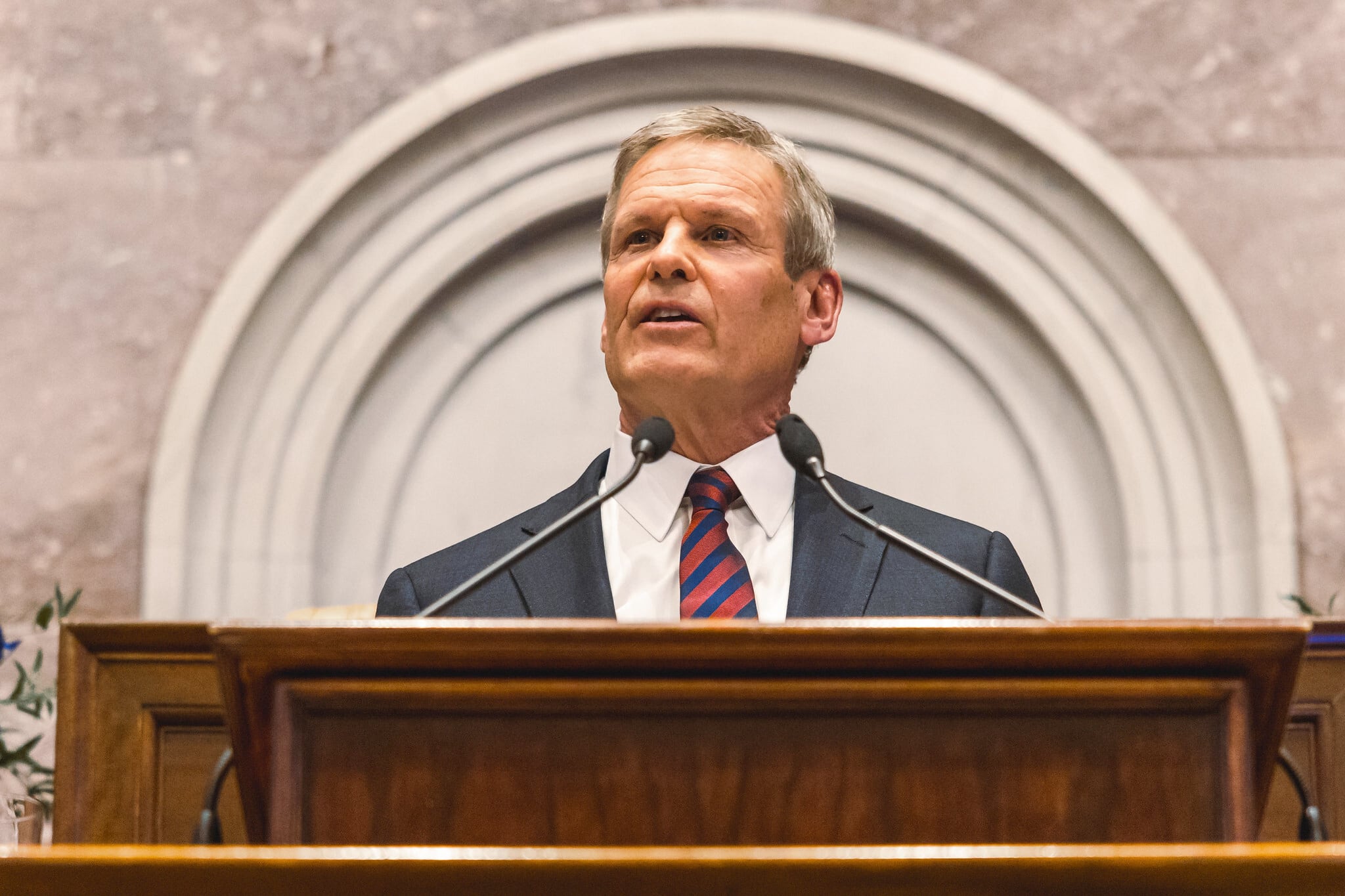Sign up for Chalkbeat Tennessee’s free newsletter to keep up with statewide education policy and Memphis-Shelby County Schools.
Praising the Trump administration as leading a “revival of our nation’s founding principles,” Gov. Bill Lee called on Tennessee schools Monday to step up K-12 civics education with an emphasis on the principles of American exceptionalism.
To accomplish that, the Republican governor wants assistance from the Institute of American Civics at the University of Tennessee, which the legislature created with bipartisan support in 2022 to strengthen civic education and participation.
“This year, I am proposing funding to expand the institute’s reach and make sure Tennessee children — from kindergarten to 12th grade — learn about the founding principles that make America the greatest country on Earth,” Lee said near the close of his 2025 address to a joint session of the Tennessee General Assembly.
Lee didn’t give specifics about how much he wants the institute to get or how the money would be spent.
Under Lee’s administration, the state has been roiled in political culture wars over what teachers can and can’t teach their students, and state law has come down on the side of restricting lessons on topics that lawmakers consider divisive, including enduring patterns of racism in America.
Tennessee was one of the first states to enact a law restricting instruction about race, gender, and bias. Numerous school boards also have banned hundreds of library books on those topics based on several state laws passed by the Republican-controlled legislature.
State budget proposal would raise minimum pay for teachers
This week’s address coincided with the release of Lee’s $59.5 billion proposed budget for state government for the year beginning July 1, including $7 billion for K-12 public education, an increase of nearly 3% over last year, and a $1 billion new investment in Tennessee roads.
Fresh from pushing through a costly universal school-voucher plan during a special legislative session, Lee called for another bump in pay for public school teachers, plus recurring funding to continue summer learning programs.
The minimum annual teacher salary would increase to $47,000 for the 2025-26 school year, up from $44,500 currently. Lee pledged in 2023 to gradually get teachers’ base pay to $50,000 by the fall of 2027, his last full year in office.
Still, Tennessee teachers are earning less than they were a decade ago, adjusted for inflation, and the state continues to trail most of the nation in student funding, according to the latest data from the National Education Association.
Lee’s spending blueprint includes extra money to support school systems that are experiencing high growth in enrollment, as well as those that are considered high performing based on more than half their schools receiving an A grade under the state’s 2-year-old evaluation formula, which emphasizes proficiency.
Lee calls for expanding career training, childcare
The governor’s address highlighted the importance of connecting today’s students with the jobs of tomorrow.
Lee wants to expand the state’s youth employment program and create a new “Tennessee Works” scholarship to cover all of the costs of attending one of the state’s 24 colleges of applied technology.
The governor said he also wants to find ways to make childcare more accessible and affordable in Tennessee, where infant care costs about the same as in-state tuition at a four-year public college. He promised “tens of thousands of new daycare spots” to help create a family-friendly workforce, but only specified an $11 million investment in the Boys & Girls Clubs, one of the state’s top childcare providers.
The address followed the end of a special legislative session in which Lee saw his full agenda pass for private school vouchers, disaster relief, and a crackdown on immigration.
Those items alone will add nearly $1 billion to next year’s state budget, during a time when state tax collections have slowed.
Democrats slammed Lee’s administration as building an economy for corporate and special interests instead of for working families who want more funding for public schools, among other things.
Marta Aldrich is a senior correspondent and covers the statehouse for Chalkbeat Tennessee. Contact her at maldrich@chalkbeat.org.






